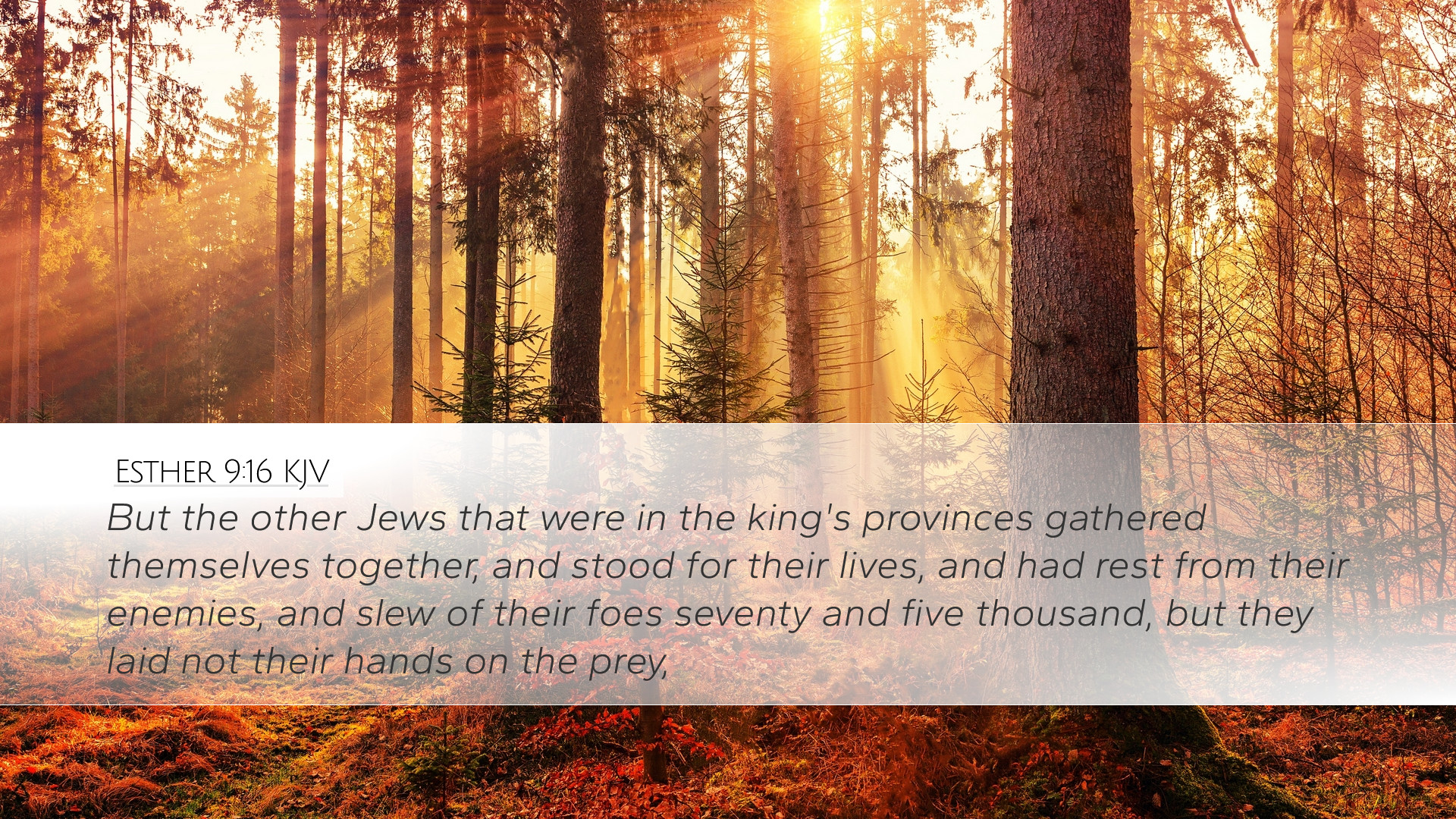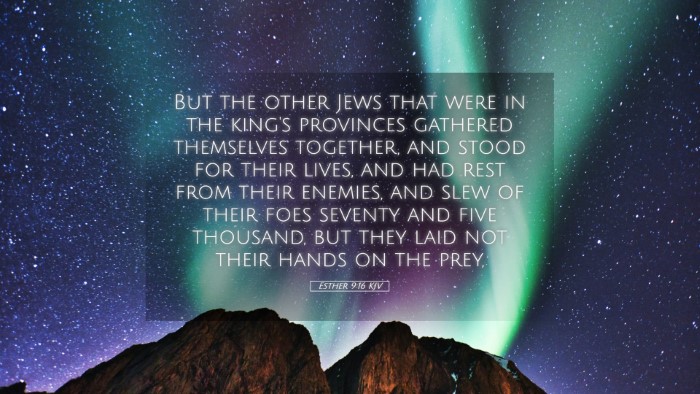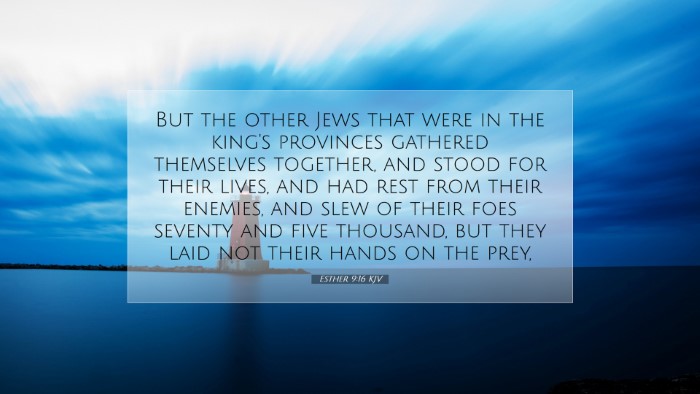Commentary on Esther 9:16
Esther 9:16 (ESV): "Now the rest of the Jews who were in the King’s provinces also gathered to defend their lives and got relief from their enemies and killed seventy-five thousand of those who hated them, but they laid no hands on the plunder."
Context and Overview
This verse is situated at a critical juncture in the Book of Esther, illustrating the turning point in the narrative where Jewish people, initially facing annihilation, are instead granted victory over their enemies. The context surrounding Esther 9:16 is essential for understanding its significance.
Following Haman's cruel decree, the Jewish community finds themselves subject to a barbaric extermination. However, through Esther’s intercession and Mordecai’s leadership, a reversal occurs, enabling them to defend themselves against impending destruction.
Analysis of Key Phrases
- "the rest of the Jews": This phrase indicates a broader coalition beyond those in the immediate areas, reflecting a communal response to the decree. It suggests unity among Jews within different provinces and highlights their collective spirit in times of crisis.
- "gathered to defend their lives": The initiative they undertook to gather provides insights into their agency. It wasn’t merely a passive waiting for rescue but an active stance against their oppressors. This emphasizes the theme of divine justice and survival through righteous action.
- "relief from their enemies": This phrase connotes not just physical safety but also psychological relief. The notion of deliverance resonates strongly within the Jewish tradition, echoing past experiences of God’s salvation.
- "killed seventy-five thousand": The scale of their victory is monumental, symbolizing a decisive act of liberation. Yet, it raises ethical questions around violence and theologically reflects on divine justice versus human action.
- "laid no hands on the plunder": This remark shows the Jews' integrity; even in victory, they refused to take what wasn’t theirs. This aligns with God's commandments about property rights and further illustrates their fidelity to principles of justice.
Theological Implications
The events described in Esther 9:16 suggest profound theological truths about God’s providence and protection over His people. As noted in Matthew Henry’s Commentary, this deliverance serves as a profound manifestation of God’s sovereignty, allowing the preservation of the Jewish nation despite overwhelming odds.
Moreover, Albert Barnes remarks on the tension between divine sovereignty and human agency, as God's providence worked through the actions of the Jews, urging them to take proactive measures to secure their survival.
Adam Clarke also draws attention to the ethical considerations regarding violence, interpreting their actions as a just response against imminent threats rather than a desire for conquest or greed, as they did not appropriate enemy possessions.
Historical Context
Understanding the historical backdrop is vital in interpreting the significance of Esther 9:16. The events take place in the Persian Empire, where the Jews were a minority facing persistent threats. The triumph of the Jewish people in this context illustrates not only a physical salvation but a reassertion of their identity amidst pervasive alienation.
The outcome described in this verse has had lasting implications in Jewish history, subsequently leading to the establishment of the festival of Purim, which celebrates survival and divine rescue. Henry emphasizes how this narrative epitomizes the oscillation of fortune between oppression and liberation.
Lessons for Today's Believers
Esther 9:16 teaches modern readers about courage, collective action, and retribution. For contemporary believers, this passage serves as a reminder of the importance of standing firm in one’s faith against injustice and acting in unity for common causes.
This verse also invites reflection on our responses to oppression and discrimination in current societal contexts, encouraging empathy, advocacy, and principled stands against injustice.
Moreover, the refusal to seize plunder challenges believers to examine their motivations and actions, aligning them with ethical principles grounded in Scripture. Clarke particularly urges consideration of integrity in triumph, aligning actions with the character of God.
Conclusion
Esther 9:16 is a potent verse that encapsulates themes of survival, divine justice, and ethical integrity in action. Through insights from public domain commentaries, this passage emerges as a rich tapestry of theological depth and practical application for believers today.
In summary, the victory of the Jews, their choice to not touch the plunder, and their gathering for defense all offer profound lessons on community, faith, and righteousness that resonate deeply across ages, underscoring God's faithfulness to those who stand steadfast in His name.


